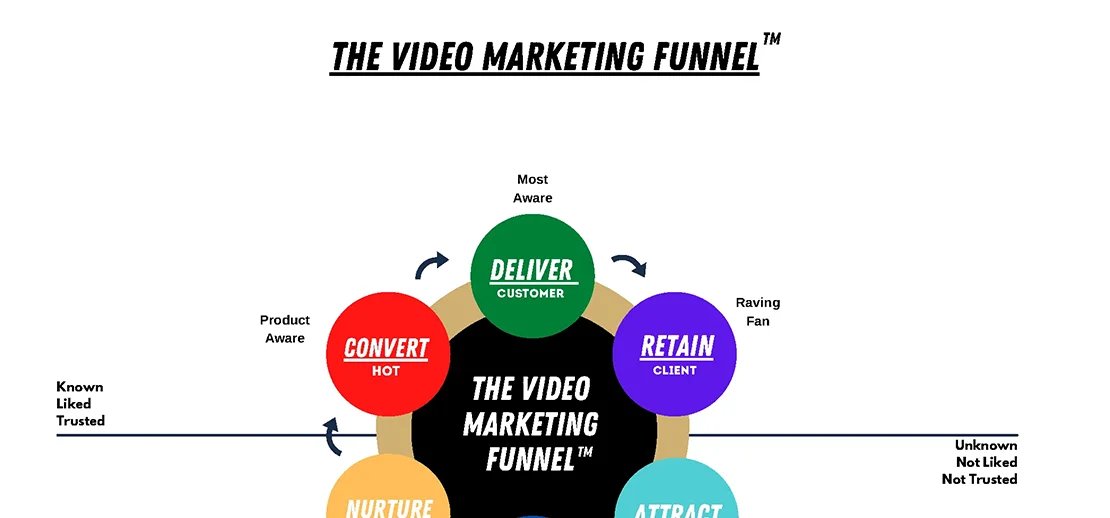
1. What is video marketing and how does it compare to video production? Why is it important?
Video marketing is the use of videos to promote products, services, or brand messaging. It is important because videos are highly engaging and can effectively convey a brand's message. Video marketing helps businesses reach a wider audience, increase brand awareness, and drive conversions.
Video production is the creation of content for a products, service or brand messaging.
2. How long should videos be for optimal engagement?
It depends on the type of content. With attention spans on average at six (6) seconds, it is advisable to have shorter content for promotional advertisements and organic content. However, for more captive audiences or platforms like YouTube, videos should be longer. The TRT (total run time) or final length of a video should be equal to how much information absolutely needs to be conveyed, with no fluff.
Keep in mind, platforms also penalize or promote videos depending on their length. This depends on the platform and what content they decide to push at a given time.
3. What are some tips for creating engaging and impactful video content?
To create engaging and impactful video content, businesses can consider the following tips:
Start with a compelling hook to grab the audience's attention within the first few seconds.
Tell a story or provide valuable information that resonates with the target audience.
Keep the video concise and visually appealing.
Incorporate branding elements, such as logos or colors, to reinforce the brand identity.
Include clear calls to action to encourage viewers to take the desired action.
4. Are there any legal considerations for using copyrighted material in video marketing?
Yes, businesses should be aware of copyright laws when using copyrighted material in video marketing. It is important to obtain proper permissions or licenses to use copyrighted music, images, or other content. Alternatively, businesses can use royalty-free or creative commons content, or create their own original content to avoid copyright issues.
5. What are the benefits of including video testimonials in video marketing?
Including video testimonials in video marketing can provide social proof and build trust among potential customers. Video testimonials allow real customers to share their positive experiences and can have a greater impact on viewers compared to written testimonials. They can also help businesses highlight specific features or benefits of their products or services.
6. What are the key elements of a successful video marketing strategy?
A successful video marketing strategy includes determining the target audience and their preferences, setting specific goals for video content, choosing the right video types, optimizing videos for search engines and viewers, measuring the success of video performance, and improving the strategy over time.
At Tyler Wursta Video we will help you choose the right type of videos, develop them for you, help you to improve the strategy over time, and depending on our partnership, help set goals and measure the success of your videos.
7. What are some common mistakes businesses make in video marketing?
Some common mistakes businesses make in video marketing include using poor quality video footage, disregarding search engine optimization, posting inconsistent content, not having a clear objective or call to action, and failing to analyze the performance metrics of video content.
8. How can businesses create effective video marketing content for different stages of the sales funnel?
Businesses can create effective video marketing content for different stages of the sales funnel by identifying the needs and preferences of the target audience and aligning their content strategy to meet those needs. For example, businesses can create product demos or showcase customer testimonials for the warm stage, and provide educational videos or webinars for the customer stage. They can also create personalized videos for lead nurturing.
9. What is the role of social media platforms in video marketing?
Social media platforms are key components of video marketing because they offer a direct route to your targeted audience, provide built-in analytics, and allow businesses to engage with potential customers. By leveraging the power of social media platforms, businesses can maximize their video marketing strategy's reach and drive higher engagement levels.
10. What are some creative ways businesses can use video marketing outside of typical marketing campaigns?
Some creative ways businesses can use video marketing beyond typical marketing campaigns include creating educational training videos for employees, recording virtual events, filming company announcements, showcasing their culture, or recording customer testimonials.